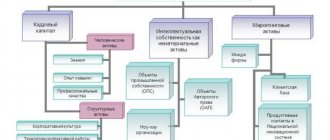Responsibilities of a police officer when contacting a citizen
In accordance with federal law dated 02/07/2011 N 3-FZ “On Police”, a police officer, when contacting a citizen, is obliged to:
1) state your position, rank, surname, present your official identification at the request of the citizen, and then state the reason and purpose of the appeal;
2) if measures are applied to a citizen that restrict his rights and freedoms, explain to him the reason and grounds for the application of such measures, as well as the rights and obligations of the citizen arising in connection with this.
What does the procedure look like?
The document verification procedure is carried out in the following order:
- A police officer politely stops a citizen and introduces himself, giving his rank, position and last name.
- The essence of the request and the reasons are stated.
- The citizen presents an identity card. In accordance with the Law, he can present the document for review without letting it go out of his hands. Confiscation of a document is allowed only when detained on the basis of compelling reasons.
- The inspector can ask clarifying questions only if there are serious suspicions that an offense has been committed. In their absence, interest in a citizen is an abuse of power.
A citizen should not enter into a dispute about the legality of an inspection if all the rules are followed and the reasons are explained. If you do not have a passport, you should explain this and offer another document to help establish your identity. If a police officer offers to go to the police station to find out your identity, you should comply with his request.
On what basis is document verification carried out?
As defined by Federal Law No. 3-FZ “On Police” dated 02/07/2011, a check of a citizen’s documents is carried out by police officers in cases where there is sufficient data that forms grounds to suspect the citizen of committing a crime or of committing an administrative offense, which is the basis to initiate a case of an administrative offense. Moreover, if police officers have any information that gives reason to suspect that a citizen is wanted, then in this case the police officers have the right to check his identity document.
In addition to the above, the basis for checking documents is also the administrative detention of a citizen in accordance with Art. 27.3 of the Code of Administrative Offenses of the Russian Federation and detention carried out in accordance with Art. 92 of the Code of Criminal Procedure of the Russian Federation - this article regulates the procedure for detaining a person suspected of committing a crime.
As you can see, police officers cannot check documents without reason. The above list of reasons for checking documents is exhaustive.
Citizen, let's go
Russian human rights activists published a memo that explains in detail the rights of citizens who, due to certain circumstances, were forced to communicate with employees of the Ministry of Internal Affairs.
Can a police officer check the documents of any citizen he meets?
No. In accordance with Part 2 of Art. 13 of the Law of the Russian Federation “On Police”, such a right arises for a police officer only if:
- there is evidence that gives reason to suspect a citizen of committing a crime;
- there is information that the citizen is wanted;
- there is a reason to initiate a case of an administrative offense against a citizen, or if he is caught committing such an offense;
- there are grounds for detaining a citizen.
In accordance with Part 4 of Art. 14 of the Federal Law “On Police”, the categories of citizens who can be detained include, in addition to those mentioned above:
- Suspects of committing crimes and persons against whom a preventive measure in the form of detention has been chosen;
- Those who escaped from custody, evaded serving a sentence, or failed to arrive at the place where the sentence was to be served;
- Those who evade administrative arrest, or from the execution of compulsory measures of a medical nature or compulsory measures of educational influence prescribed by the court, or from going to specialized medical institutions for the execution of compulsory measures of a medical nature assigned to them by the court;
- Those who illegally entered or attempted to enter protected facilities;
- Those who violated curfew rules;
- Those who have attempted suicide or have signs of severe mental disorder and create a danger to themselves and others by their actions;
- Those who have escaped from a psychiatric hospital or are hiding from court-ordered hospitalization in such an institution;
- In respect of whom a request for extradition has been received from a foreign state on the grounds and in the manner prescribed by the legislation of the Russian Federation.
If you do not belong to these categories of citizens, then there is no reason for the police to check your documents. But we should not forget that in accordance with Art. 72 of the order of the Ministry of Internal Affairs of the Russian Federation dated January 29, 2008 N 80 “Issues of organizing the activities of combat units of the public security police patrol service,” the police are obliged to pay special attention to:
- persons who often appear at facilities where material assets are stored and in circulation, banking institutions, trading enterprises, warehouses, bases, and who show interest in the condition of windows, doors, locks, fences, operating hours and security arrangements;
- showing suspicious alertness and anxiety, dressed inappropriately for the season or in clothes that do not correspond to their height and build, as well as having bandages and injuries;
- groups of people, especially young people, gathering in squares, courtyards, entrances of houses and other places;
- engaged in vagrancy and begging;
- street children and children playing in dangerous places.
Police attention to these groups, unless, of course, there is a violation of their rights, is not a violation of the law.
What are the rules for a police officer to contact a citizen?
When contacting a citizen, a police officer must:
- state your position, rank, surname, present your official identification at the request of the citizen, and then state the reason and purpose of the appeal;
- in case of application to a citizen of measures that limit his rights and freedoms, explain to him the reason and grounds for the application of such measures, as well as the rights and obligations of the citizen arising in connection with this (Part 4 of Article 5 of the Federal Law -3).
The Charter of the Patrol Service (Order of the Ministry of Internal Affairs of the Russian Federation No. 80 of 2008) imposes special requirements on a PPS employee when communicating with a citizen. The teaching staff employee is obliged to say hello, putting his hand to his headdress, state his position, rank and surname, and then briefly state the reason and purpose of the appeal (clause 227 of the Charter of the teaching staff). At the request of officials and citizens, the patrol (guard) policeman is obliged to state his name, the internal affairs agency and present his service ID, without letting it go (clause 228 of the PPSM Charter). As stated in the “Memo on the professional culture of relations between police officers and citizens,” “in dealing with citizens, an arrogant tone, rudeness, arrogance, impolite presentation of comments, threats, expressions and remarks that insult human dignity,” moralizing and unfair reproaches, presentation of undeserved accusations, threatening gestures and signs. The police officer must present his demands and comments in a polite and convincing manner, listen to explanations carefully, without interrupting the speaker.”
When talking with citizens, a PPSM employee must show calm and restraint; they must not enter into arguments, lose self-control, respond to rudeness with rudeness, and not be guided in their actions by personal hostile feelings (clause 229). If the offender reacts excitedly to comments made to him, he must be given time to calm down and given the opportunity to give an explanation about his unlawful actions, and then explain the incorrectness of his behavior with reference to the relevant laws or other regulatory legal acts. Only after this can a decision be made to draw up a protocol, to deliver the offender to the department of internal affairs, or to confine himself to a remark (clause 230).
Reprimands for violators who have children with them should, if possible, be made in such a way that the children do not hear it (paragraph 231). Patrol officers should treat teenagers with the same courtesy as adults. Remarks for children are made taking into account their age (clause 232). If money and other securities are invested in a citizen’s document, it is necessary to invite the owner to take them himself (clause 233).
At the same time, it should be noted that this is a difficult situation when you believe that you did not violate anything and there were no grounds for checking your documents, but the policeman made a mistake in good faith, unwittingly violating your rights. In such a situation, you must try to explain to the police officer that he is wrong; if he does not agree with you, you should comply with his demands by informing the duty department of the internal affairs body about the violation by phone “02”. After the restriction of your rights has been terminated, you can forgive the employee (if he apologized to you) or appeal his actions.
Is a police officer required to identify himself if approached by a citizen?
Yes, and not just name your position, title, last name, but also listen carefully to the citizen, take appropriate measures within the limits of your authority, or explain whose competence it is to resolve the issue raised (Part 5 of Article 5 of the Federal Law -3).
How should a patrol officer act if he identifies a foreign citizen without registration?
When checking documents of foreign citizens and stateless persons, the patrol officer is guided by the laws regulating the legal status of foreign citizens on the territory of the Russian Federation. At the same time, he draws attention to the place and validity period of registration of the national passport, documents confirming the legality of stay in the Russian Federation, the presence of appropriate marks (date - stamp) confirming the crossing of the State Border of the Russian Federation (clause 238).
When identifying foreign citizens and stateless persons who do not have documents with them, are staying without registration, as well as with expired or invalid documents, the patrol officer is obliged to inform the police officer on duty about this and act on his instructions (clause 239).
At the same time, in accordance with paragraphs 34, 35 of the “Manual on organizing the activities of the Ministry of Internal Affairs of the Russian Federation, the Federal Migration Service and their territorial bodies for deportation and administrative expulsion from the Russian Federation of foreign citizens or stateless persons,” approved by the Ministry of Internal Affairs of the Russian Federation and the Federal Migration Service 12.10. 09 N 758/240, an employee of the Ministry of Internal Affairs has the right to deliver a person without registration to only one place - the Federal Migration Service. Delivering a foreign citizen who violates the registration rules to the police department on duty is the exclusive competence of a FMS employee.
If you believe that you did not violate anything and there were no grounds for checking your documents, but the policeman made a mistake in good faith, unwittingly violating your rights, you should try to explain to him that he is wrong. If he does not agree with you, you should comply with his demands by informing the duty department of the internal affairs body about the violation by phone “02”. After the restriction of your rights has been terminated, you have the right to forgive the employee (if he apologized to you) or appeal his actions.
Is a citizen required to carry a passport?
No. In accordance with Art. 55 of the Constitution of the Russian Federation, any duty can be imposed on a citizen only by federal law. However, no federal law requires a citizen to carry a passport. This means that holding a person accountable for not having a passport with him is illegal.
But if a citizen has lost or damaged his passport due to careless storage, or has deliberately harmed his passport, he will face liability under Art. 19.16 Code of Administrative Offenses - a fine in the amount of 100 to 300 rubles. The citizen also becomes liable if at his place of permanent residence or place of temporary residence (the so-called place of stay) he does not have a passport, or the passport is invalid, or the citizen does not have registration. Please note: citizens of Russia and Belarus have the right to live in residential space without registration for up to 90 days, foreign citizens - up to 7 days.
Let us clarify what “place of stay” and “place of residence” are. In accordance with the Law of the Russian Federation dated June 25, 1993 N 5242-I “On the right of citizens of the Russian Federation to freedom of movement, choice of place of stay and residence within the Russian Federation,” a place of residence is understood as a residential premises in which a person lives temporarily (for example, a hotel, sanatorium, holiday home, boarding house, camping site, tourist center, hospital, etc.).
Place of residence means a residential building, apartment, service housing, dormitory, shelter hotel, house of flexible fund, home for single elderly people, boarding house for the disabled, veterans, etc., as well as other residential premises in which the citizen is permanently or primarily lives as an owner, under a lease (sublease), lease agreement, or on other grounds provided for by law (Article 2 of the Law of the Russian Federation).
In accordance with clause 4 of the Rules approved by Decree of the Government of the Russian Federation of July 17, 1995 N 713 “On approval of the Rules for registration and deregistration of citizens of the Russian Federation at the place of stay and place of residence within the Russian Federation and the list of officials responsible for registration” control Compliance with the Registration Rules is monitored by the Federal Migration Service of the Russian Federation. The police only help them with this.
If you believe that you did not violate anything and there were no grounds for checking your documents, but the policeman made a mistake in good faith, unwittingly violating your rights, you must try to avoid the development of a conflict and explain to him that he is wrong. If he does not agree with you, you should comply with his requirements by informing the duty department of the internal affairs body about the violation by phone “02”, asking to send a representative of higher management to the place for the investigation. After the restriction of your rights has been terminated, if the employee apologizes to you, you have the right to forgive him, and if he does not repent or his actions caused significant harm to you, the employee’s actions should be appealed, up to the recovery of damage caused by unlawful actions or police inaction.
Is a police officer patrolling the territory required to accept a report of an offense outside the duty station?
Yes. According to clause 9 of the Instruction on the procedure for receiving, registering and authorizing statements, messages and other information about incidents in the internal affairs bodies of the Russian Federation, approved by Order of the Ministry of Internal Affairs of the Russian Federation No. 333 dated 04.05.10, “outside the internal affairs bodies, reports of incidents are required to be accepted by any employees internal affairs bodies, while the employee records information about the applicant. Incident reports received by the employee are transmitted by courier, by telephone or by other means of communication to the duty station of the internal affairs body for immediate registration.”
Paragraph 87 of the Patrol Service Charter requires an employee of the Ministry of Internal Affairs, when receiving information from citizens about crimes being committed or committed, to establish and record all identifying information about the applicants, the specific location of the crime, by whom and against whom it was committed or is being prepared, and other information relevant to solving a crime. After this, the policeman must immediately report this to the duty officer and the boss, take measures to identify and detain the perpetrators of the crime, provide assistance to the victims, identify witnesses and, until the arrival of the investigative team, ensure the protection of the scene of the incident, the integrity of the situation, the safety of traces and material evidence. Therefore, if, when contacting a police officer, you are advised to go and write a statement to the duty station, remind the requirement of clause 9 of Order No. 333 of the Ministry of Internal Affairs of the Russian Federation.
Does a police officer have the right to demand citizens to leave a certain place?
Yes, but only if:
- this place is the place where a crime, administrative offense, or incident was committed, and it is necessary to carry out investigative actions or operational search activities at this place;
- it is necessary to preserve traces of the crime;
- to ensure the safety of citizens, in order to protect their life, health and property;
- when in public places at the site of an uncoordinated public event of citizens, if the resulting crowd of citizens creates a threat to their or other persons’ life and health, property, disrupts the work of organizations, impedes the movement of vehicles and pedestrians.
In the latter case, the police have the right to demand that citizens either disperse or move to another place (Clause 7, Article 13 of Federal Law No. 3).
In what case can physical force, handcuffs, a rubber truncheon or a firearm be used against a citizen?
Rule #1:
Before using them, the officer must inform the person against whom such use is planned that he (the police officer) intends to use force or special means, and give this person time to comply with the lawful demands of the police officer (Clause 1 of Article 19 of the Federal Law No. 3). But this rule does not apply if the delay creates an immediate threat to life or health, as well as the danger of other serious consequences.
Rule #2:
when using them, the police officer not only takes into account the situation, the degree of danger of the person’s actions, the nature and strength of the resistance provided, but also strives to minimize damage (Part 3 of Article 19).
Rule #3:
If, as a result of the use of physical force, special means or weapons, a citizen is injured, the police officer provides him with first aid and takes measures to provide medical assistance.
Rule #4:
If such bodily harm is caused to a citizen, the police officer notifies the relatives or other loved ones of the victim as quickly as possible, but no later than 24 hours (Part 5 of Article 19).
Rule #5
(applies only to physical force): physical force is used only when it is impossible to stop an offense by non-forceful means, to force a police officer to comply with a legal requirement, or to deliver a detainee (Part 1 of Article 20 of the Federal Law No. 3).
Rule #6:
“Police activities that restrict the rights and freedoms of citizens are immediately terminated if a legitimate goal is achieved or it becomes clear that this goal cannot or should not be achieved by limiting the rights and freedoms of citizens” (Clause 2 of Article 5 of the Federal Law No. 3).
A police officer can use special equipment in the following cases:
| Rubber poles | Gas products | Mobility restraints | Special coloring and marking agents | Electroshock devices | Service Animals | Means of forced stop of transport | Means of restricting movement | Water cannons | |
| 1) repelling an attack on a citizen or police officer | Yes | Yes | No | No | Yes | Yes | No | Yes | No |
| 2) suppression of a crime or administrative offense | Yes | Yes | No | No | Yes | Yes | No | Yes | No |
| 3) suppression of resistance provided to the employee | Yes | Yes | Yes | No | Yes | Yes | No | Yes | No |
| 4) detention of someone caught committing a crime and trying to escape | Yes | Yes | Yes | No | Yes | Yes | No | Yes | No |
| 5) detention of a person who may offer armed resistance | Yes | Yes | No | No | Yes | Yes | No | Yes | No |
| 6) delivery to the police, escort and protection of detainees and prisoners | No | No | Yes | No | No | Yes | No | No | No |
| 7) release of forcibly detained persons, seized buildings and premises | Yes | Yes | No | No | Yes | Yes | No | No | Yes |
 suppression of riots and other illegal actions disrupting traffic suppression of riots and other illegal actions disrupting traffic | Yes | Yes | No | No | Yes | No | No | No | Yes |
| 9) stopping a vehicle whose driver did not comply with the police officer’s request to stop | No | No | No | No | No | No | Yes | No | No |
| 10) identification of persons who commit or have committed crimes or administrative offenses | No | No | No | Yes | No | Yes | No | No | No |
| 11) protection of protected objects, blocking the movement of groups of citizens | Yes | No | No | Yes | No | Yes | Yes | No | Yes |
For failure to comply with the legal requirements of a police officer, a citizen is liable under Art. 19.3 of the Code of Administrative Offenses of the Russian Federation and can be arrested for a period of 1 to 15 days. At the same time, when violence is used against a representative of the authorities, liability arises under Art. 318 of the Criminal Code of the Russian Federation, which provides for up to 5 years of imprisonment, and causing minor bodily harm to a police officer - up to 10 years of imprisonment.
How to behave if you are detained?
If you believe that you were detained unreasonably, be calm and restrained, completely copy down all the information on the official ID of the employee who detained you, as well as those persons who refused to let you go when taken to the department’s duty station.
If possible, identify and record the information of witnesses who can confirm the unfoundedness of your detention, demand the opportunity to contact your relatives or a lawyer.
If possible, report the unlawful actions of the police officer by calling “02”, where your call will be recorded not only by the operator, but also on an electronic medium.
Keep in mind that if you are accused of committing an administrative offense or a criminal offense, the case of which is subject to consideration by a magistrate, then not necessarily a lawyer, but any an adult capable citizen.
Write down the details of your cellmates; it is possible that you will need their certificates. Read everything you sign carefully. If something in the protocol or act is written incorrectly, make a handwritten note below with your objections.
If you have evidence of innocence that the police do not know about or do not want to pay attention to, before signing the document, write your requests (“I ask you to call and interrogate such and such, request and attach such and such a document, inspect such and such room”, etc.).
If you are really guilty, focus on mitigating circumstances and positive data about your personality. In this case, by denying your guilt, you are likely to worsen your own situation.
Where can you complain about unlawful actions of police officers?
| Name of body | Address | Telephone |
| Department of Internal Security of the Moscow City Internal Affairs Directorate | Moscow, st. Barrikadnaya, 8 building 5-g | 255-96-57, 254-86-50 (at the Metropolitan) |
| Personnel Inspectorate of the Moscow City Internal Affairs Directorate | Moscow, Petrovka, 38 | 698-66-61, 698-66-63 |
| Helpline of the Moscow City Internal Affairs Directorate | Moscow, Petrovka, 38 | 709-13-12 |
| Police Department at the Moscow Metro | Mira Ave., 41 building 2 | 622-71-94, 621-01-31 |
| Government hotline for law enforcement agencies | 777-11-47 (from 8.00 to 17.00) | |
| Duty department of the Moscow City Internal Affairs Directorate | Petrovka, 38 | 02 |
| Moscow Prosecutor's Office | Moscow, Novokuznetskaya, 27 | 951-71-97 (inquiry) |
| Reception of the Public Council at the Moscow City Internal Affairs Directorate | Moscow, Petrovka, 19 building 4 | 694-91-40 |
New badges for police officers
Address of PPSP employees to citizens
Order of the Ministry of Internal Affairs of Russia dated January 29, 2008 No. 80 “Issues of organizing the activities of combat units of the police patrol service” establishes that an employee of the PPSP unit in any conditions must be polite and tactful with citizens, address them as “you”, their demands and comments present in a convincing and understandable form, avoid disputes and actions that offend their honor and dignity.
When talking with citizens, police patrol officers are required to show calm and restraint, should not enter into arguments, lose self-control, respond to rudeness with rudeness, and not be guided in their actions by personal hostile feelings.
If the offender reacts excitedly to comments made to him, he must be given time to calm down and given the opportunity to give an explanation about his unlawful actions, and then explain the incorrectness of his behavior with reference to the relevant laws or other regulatory legal acts. Only after this can a decision be made to draw up a protocol, deliver the offender to the internal affairs department (department), or limit himself to a remark.
Who has the right to stop for inspection?
Only an employee of the Ministry of Internal Affairs who is on duty (on duty) can stop a person to check documents . He is given such rights only in the territory related to his direct responsibility. Most often, document checks are carried out by patrol units and local inspectors. In the first case, the police have the right to perform such an action only within the approved route, which is confirmed by the route card. Deviation from it is considered an abuse of authority. The district police officer can ask for documents only in the territory assigned to him. Police officers from one district of a city or region cannot conduct an inspection in another district. In addition to these officials, document checks can also be carried out by other employees of the Ministry of Internal Affairs during special raids and operations. To do this, there must be a corresponding order from authorized, higher authorities. The legality of conducting such events must be documented.
Responsibility for falsifying an identity document
Persons who have presented documents with obvious signs of falsification or are in illegal possession of them are delivered to the duty station of the territorial body of the Ministry of Internal Affairs of Russia at the district level.
Criminal liability has been established for a citizen for falsifying an identity document.
Art. 327 of the Criminal Code of the Russian Federation. Forgery of a citizen's passport or certificate granting rights or exempting from duties for the purpose of their use or sale of such documents is punishable by restriction of freedom for a term of up to 3 years, or forced labor for a term of up to 3 years, or imprisonment for a term of up to 3 years.
What are the penalties for pedestrians and passengers?
In general, for any violation of traffic rules by a pedestrian or passenger in the context of their participation in the process of road traffic, a single fine is provided - only 500 rubles, which can also be paid at a discount within 20 days from the date it is issued. The fine is provided for in Part 1 of Article 12.29 of the Administrative Code.
But there is a more severe sanction - for refusing a lawful request of a police officer, you can be booked under Part 1 of Article 20.25 of the Administrative Code, and for this the maximum punishment is administrative arrest for up to 15 days.
And the last punishment can be applied if the employee refuses to comply with the legal requirement:
- present documents for verification,
- do not stop at his request.
Document seizure protocol
So, the tax authorities have raked out a bunch of documents from your bins. But, firstly, they have no right to take everything. Only those documents that relate to the period or subject of the inspection are subject to seizure.
Are inspectors exceeding their authority and screwing everything up? Feel free to record your objections in the minutes.
Secondly, tax officials also do not have the right to simply dump documents in boxes and leave.
They are required to enter all seized documents into the protocol. Or draw up inventories and attach them to the protocol.
Important: if there is no inventory of documentation or it does not indicate specific documents (for example: inspectors simply listed the number of boxes with documentation), the seizure of documents is illegal. And the courts confirm this.
The tax authorities will have to stitch the seized documents, number them and ask the company official to certify the stitched bundles with his signature and the seal of the organization. If an official refuses to endorse stacks of documents, inspectors will record this fact in the protocol.
Recess base
Please note that tax authorities are not required to warn you in advance about seizure. Most likely, the inspectors will fall on you out of the blue, and your confusion will only play into their hands.
However, they cannot come to you empty-handed. Inspectors are required to present you with orders for the seizure of objects and documents.
The resolution must indicate the justified and motivated circumstances that served as the basis for the seizure of documents.
Let’s say right away that tax authorities often neglect this point. They often write general phrases into the resolution.
For example, they indicate as the basis for seizure: “The taxpayer’s refusal to provide duly certified copies of the requested documents.”
The courts do not approve of this approach. Taxpayers are required to indicate specific circumstances, facts proving that the taxpayer intended to hide, replace or destroy documents. The only reason inspectors do not need to confirm the right to seize is to seize originals for examination.
The resolution must contain a description of the documents to be seized. Moreover, tax authorities are not required to draw up a specific list of documents, since there is no such requirement in the Tax Code. Unfortunately, the courts are in complete agreement with the tax authorities on this issue.
The resolution must be signed by the official of the Federal Tax Service who is conducting the inspection, and by the head of the inspection (his deputy), who made the decision on the inspection.
If the resolution is drawn up with violations, it can be appealed to a higher inspection and court . NASB lawyers are ready to be with you at all stages of the inspection, as well as represent your interests in the Federal Tax Service and the court (which, with a competent approach, the matter may not reach).
What happens if you refuse?
Based on the traffic rules, it is required to say that the driver is obliged to present his documents to the traffic police officer upon request. Failure to comply may result in an administrative penalty. This is stated in Article 12 of the Code of Administrative Violations.
You should also understand on the basis of which document the inspection is carried out. According to the law, a representative of the State Traffic Inspectorate has the right to ask to see:
- Driver's license.
- Vehicle registration certificate.
- Vehicle passport.
- OSAGO policy.
- If necessary, a permit to transport passengers or cargo.
- Disabled person's certificate.
Seizure of documents: how is it done and what acts are regulated?
Almost any entrepreneur who has been operating for a long time on the territory of Russia has encountered or will certainly encounter in the future the seizure of the organization’s documents by regulatory and law enforcement agencies.
Errors made during the seizure of documents by tax authorities, bodies carrying out operational investigative activities, as well as bodies of inquiry and investigation are fraught not only with tangible financial losses, but also with loss of business reputation and even criminal liability.
Meanwhile, the procedure for seizing documents is strictly regulated by current legislation, and we will note the main provisions that every entrepreneur should know.
What things are considered prohibited?
The list of things that cannot be owned by citizens of Ukraine due to a ban or lack of permission is enshrined in Addendum No. 2 to the Resolution of the Supreme Council of Ukraine dated June 17, 1992 “On the right of ownership of certain types of property.”
In particular, prohibited items include:
- weapons, ammunition (except for hunting and pneumatic weapons, for which a permit and ammunition for it can be obtained, as well as sports weapons), combat and special military equipment;
- explosive substances and means of explosion, all types of rocket fuel and special materials for its production;
- chemical warfare agents;
- narcotic, psychotropic, potent drugs (except for those prescribed by doctor's prescription);
- special technical means of secretly obtaining information;
- anti-hail installations and state standards of units of physical quantities.
Administrative violation
If an administrative violation has occurred, the police officer, in order to create a case, is obliged to:
- deliver the offender to the department (delivery);
- conduct a search of the offender and his belongings;
- Confiscate documents and items present.
The police officer is obliged to draw up a report on the delivery or leave an entry in the report on the presence of an administrative offense.
What items do you need permission to store, at what age and who issues it?
Internal affairs bodies issue permits for storing and carrying the following items:
- firearms smooth-bore hunting weapons - to persons over 21;
- firearms hunting rifled weapons (hunting carbines, rifles, combined weapons with rifled barrels) - persons over 25 years of age;
- gas pistols, revolvers, cartridges for them, charged with substances with tear or irritant effects - to persons over 18 years of age;
- cold steel and pneumatic weapons with a caliber of more than 4.5 millimeters and a bullet speed of over 100 meters per second - to persons over 18 years of age.
The State Nuclear Regulatory Inspectorate of Ukraine issues a permit for radioactive substances if there is a conclusion from the sanitary and epidemiological service.









